I found out about Ruta Sepetys’ new book focused on communist Romania, “I Must Betray You”, from a newsletter of Politics & Prose, the iconic book store chain on Washington DC. Being drawn both to books and Romania, I started researching about the author and her latest book. At the beginning of February, I also attended a book talk with the author, the Romanian Ambassador to the United States, H.E. Andrei Muraru, and Kristina Olney, the Director of Government Relations for the Victims of Communism Memorial Foundation.
I reached Ruta through a friend of mine, Edie Chang, amazing human being with love for books and knowledge. Edie is a former librarian with St. Albans School in Washington, DC, a private all boys day and boarding school, and a Harvard Graduate. I mentioned the book to Edie and that I am really keen on interviewing Ruta. I was flabbergasted when she replied that Ruta is a friend and she can make an introduction.
So, here are her thoughtful reflections of the five year research and the labor of love that went into this book that tells, yet, another story that could been, otherwise, lost.
Ruta Sepetys, photo by Rachel Kinney
Daniela Kammrath: After “Between Shades of Gray,” “Out of the Easy,” “Salt to the Sea,” and “The Fountains Of Silence,” this is your fifth historical novel. Why Romania? How did you choose the events of 1989 as the subject for your book?
RS: My father was a victim of communism. At four years old, he fled from Lithuania and spent nine years in refugee camps before being allowed into the United States. I thought I had a general understanding of post WWII communism in Europe, but while on a book tour in Romania, I was shocked to learn of the brutal dictatorship of Nicolae Ceaușescu, his particular brand of national communism, and the extent of human rights abuses suffered by the Romanian citizens in the 1980s. The endurance and bravery of the Romanians was astounding but the history remains unknown to many. I wanted to share the story and give voice to their courage.
D.K.: How long did it take the research for the book?
R.S.: I spent five years researching the book and fortunately, I was able to take several extensive trips to Romania prior to the pandemic.
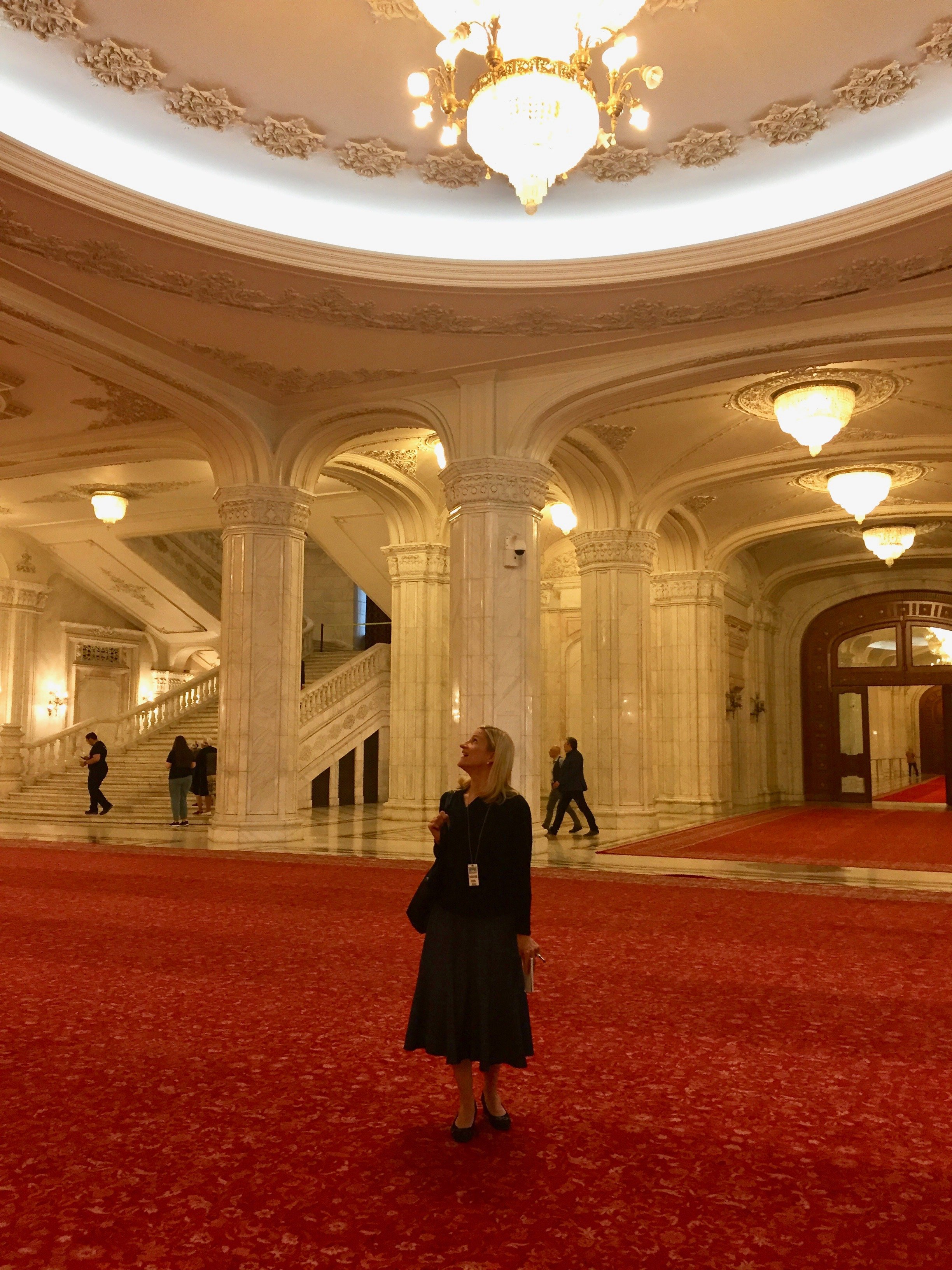
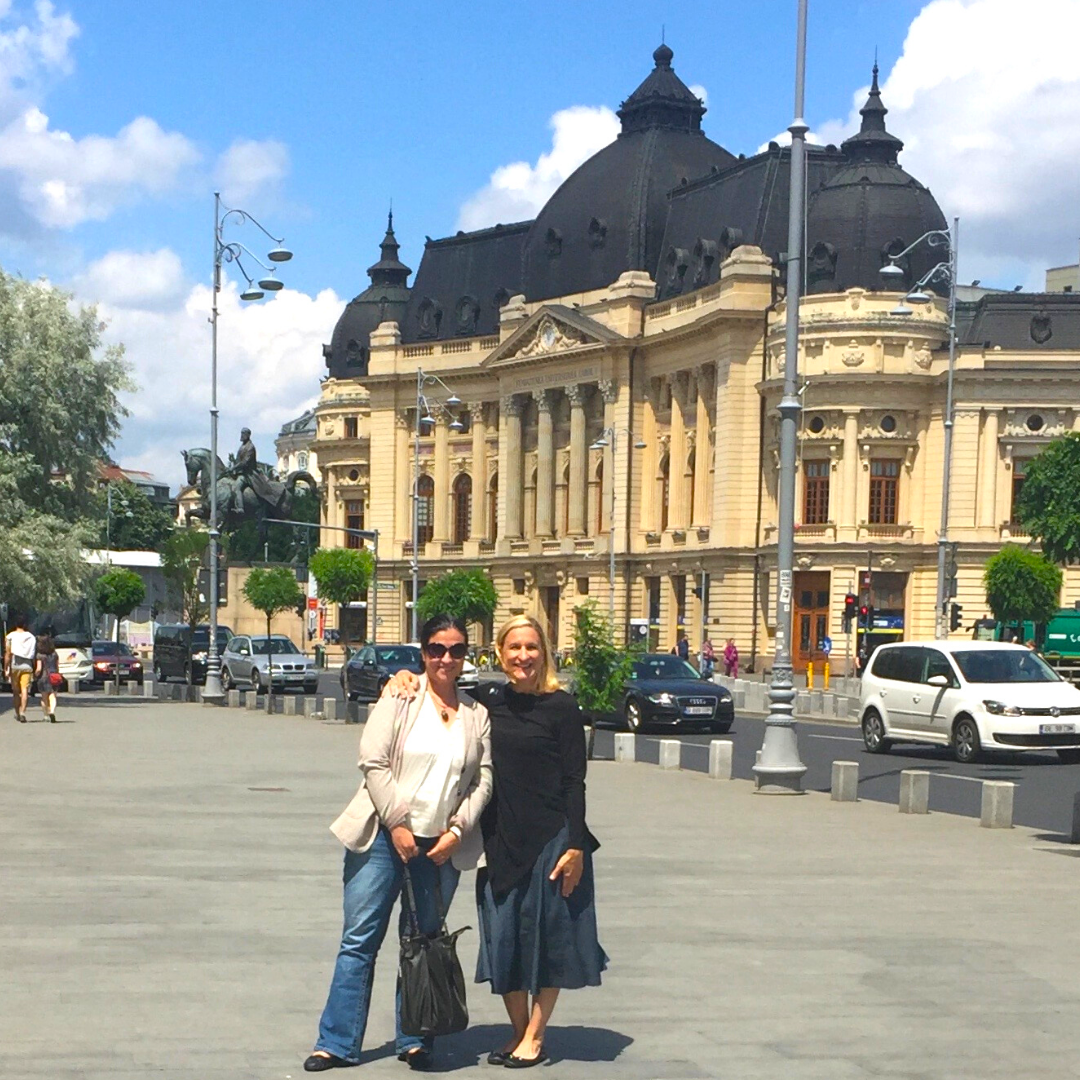
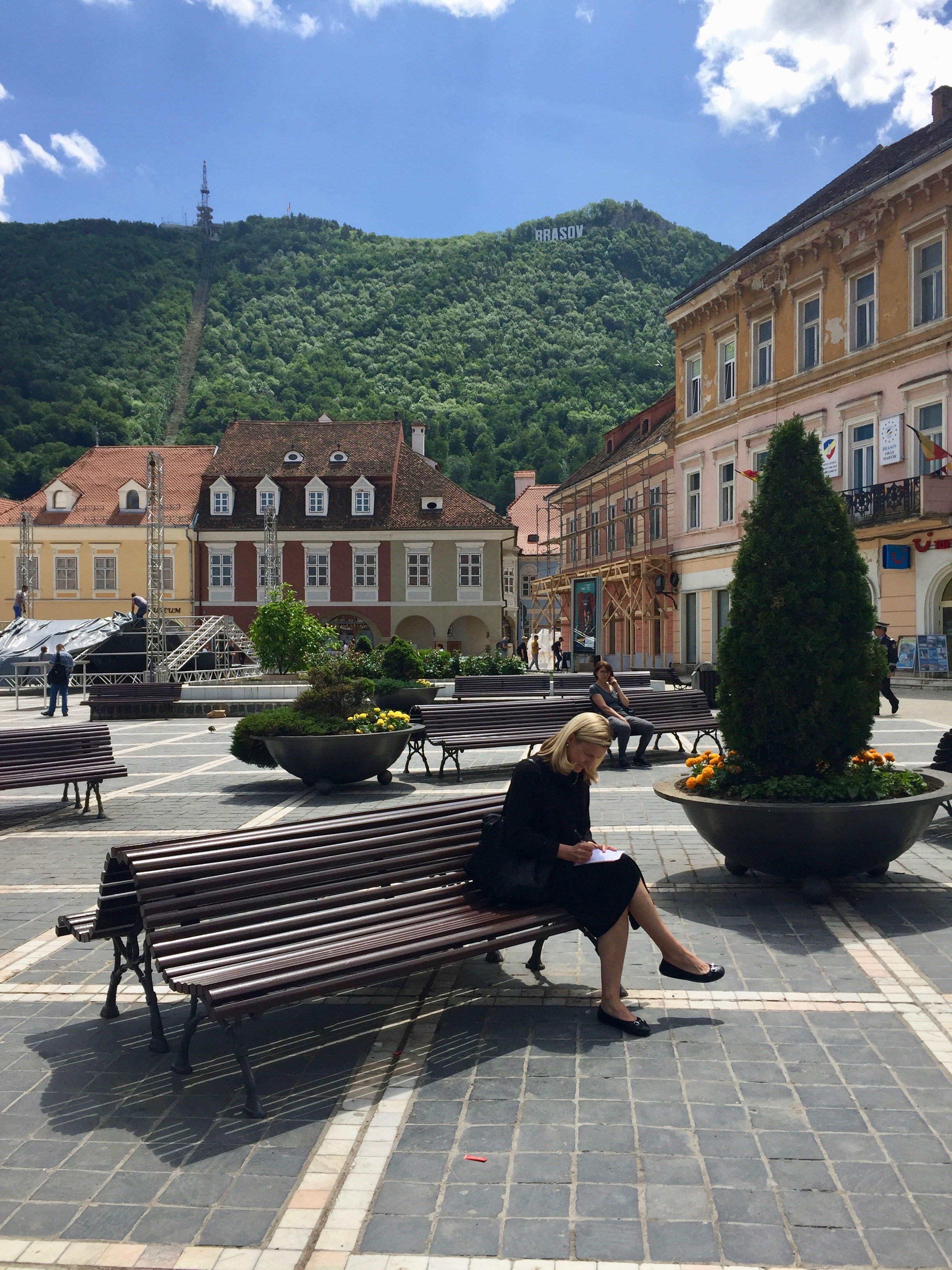
D.K.: What is the process you go through from idea to writing the book? How many hours do you write per day?
R.S.: My first step is to read and research as much as I can about the time period. Historical fiction sits on the shoulders of nonfiction, academic texts, memoir, and testimony. So, I begin the process by reading to familiarize myself with the history. During this period, I arrange meetings with historians and academics who are experts on the topic. I then travel to the locations where the story took place and interview true witnesses who experienced the period I’m writing about. And as I’m researching and interviewing witnesses, I begin to sketch out ideas for scenes and characters, pulling threads from various interviews and weaving them together into composite characters. My schedule is such that my publisher often has media, events, or administrative commitments that I must fulfill. So, in order to focus, I have to block out days and weeks to do nothing but write. During a “writing week,” I might spend a solid 12-14 hours per day working. That allows me to be entirely immersed in the story and history.
D.K.: For people that have not experienced Romanian communism, some of the things that were happening sounded like fiction. What were the most surprising things you learned during this period?
R.S.: There were many surprising aspects and I owe a huge debt of gratitude to the countless Romanians who so generously worked with me and shared their experiences. The interviews were shocking, inspiring, and unforgettable. Some of the many surprising aspects about the period:
• the level of mass surveillance and isolation that the Romanians experienced
• the scarcity of food and electricity
• the West’s support of Ceaușescu
• and most of all, the incredible endurance of the Romanian people.
“Mistrust was a form of terror during the communist regime.”
D.K.: I remember the fear we had growing up during communism that we are constantly spied on by the Secret Police and that we cannot really trust a lot of people. You also mentioned during the Politics and Prose book talk on Thursday, February 10th that “mistrust was a form of terror during the communist regime (in Romania and not only)”. Would you care to elaborate for our readers?
R.S.: I’ve written about other countries that endured communist regimes and during my many years of research, I’ve found that citizens of other countries found strength and reassurance together with their fellow countrymen. They had a unity of victimhood. In Romania, the regime and the Securitate instilled a sense of mistrust and fear. Romanians weren’t quite sure whom they could trust—even in their closest circles. That element of mistrust robbed the citizens of any sort of solidarity.
D.K.: How did you build the main character, Cristian Florescu?
R.S.: The character of Cristian Florescu was built through interviews with many Romanians who were teenagers in the late 1980s. I wanted to create a main character who could serve as a juxtaposing force—a teenager who embraced the power of love up against a dictator who embraced the love of power.
D.K.: There are several layers of betrayal you portray in the book. Could you talk about them?
R.S.: Ceaușescu betrayed his own country and countless other countries. His particular brand of national communism and his use of the Securitate caused trauma and plural identity, at times forcing Romanians to betray even themselves. In addition, by isolating the country and its people, Ceaușescu robbed the world of access to Romanian culture and history. I wanted to represent the various levels of betrayal in the story, along with the consequences of betrayals among community members and families.
D.K.: Beyond the literary value of your book, what do you assume as your contribution in preserving the historical truth?
R.S.: I try to provide readers a window—a vivid glimpse into the past with the hope that they’ll become engaged and pursue additional research on their own. At its best, historical fiction works in concert with nonfiction so my goal is always to inspire readers to seek out the nonfiction source material. It’s the real stories and testimonies that are the most important.
D.K.: As a historical fiction writer that appeals both to adults and youth, how do you think the history of communism should be taught in schools today?
R.S.: Unfortunately, the history of communism is taught in very few schools today. That’s unfortunate, because knowledge of the history and those affected would not only illuminate the past but give context to the present. Considering Russia’s current invasion of Ukraine, it might be helpful for educators to provide students examples from the past and allow them to compare and contrast to what is tragically transpiring today. Through their examination, they could follow the course of communism throughout the years.
D.K.: Cristian Florescu is a resilient and courageous young man that depicts a lot of known and unknown heroes of Romania. We used to learn about Romanians defying the system by listening to the “Free Europe” Radio or “Voice of America”, which was also illegal. It just occurs to me that your book would have also been forbidden during these times. As a historian-novelist, why did you take it as your mission to tell this story, or any of the ones you wrote?
R.S.: I’m inspired to continue to share underrepresented stories because when history remains hidden in the shadows, those who experienced the history often feel misunderstood—or worse—they feel forgotten by the world. Acknowledging someone’s personal history and challenges affirms human dignity. We live in a world where many of us don’t really know the stories of our neighbors or community members. As a result, we’re missing the opportunity for deeper human connection and understanding. Our communities might be more compassionate if we were more familiar with each other’s personal experiences.
D.K.: Is the book going to be translated in Romanian language?
R.S.: Yes! The book has been translated into Romanian by Gabriela Stoica and has been published in Romania by my longtime publisher, Epica Publishing House. In Romania they’ve titled the book, The End of Whispers, December 1989. You can find details on the Romanian edition here: https://edituraepica.ro/produs/sfarsitul-soaptelor-decembrie-1989/
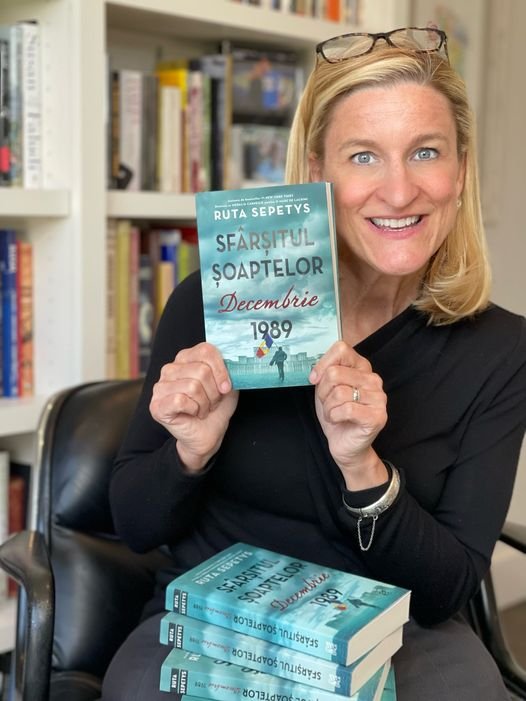
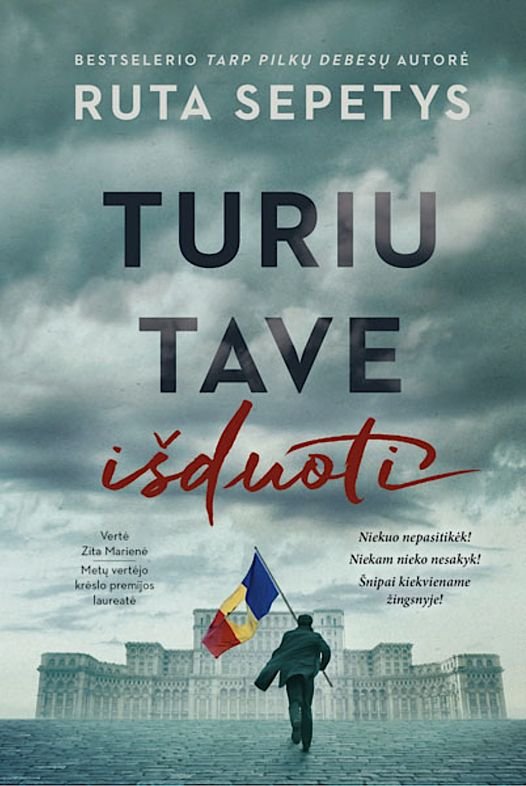
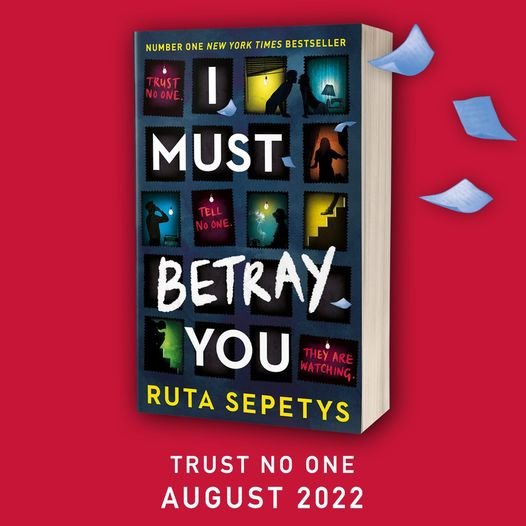
D.K.: What is your next project about?
R.S.: My next project is actually a creative writing guide. Over the past ten years, conversations at my book events inevitably turn from conversations about history, to conversations about personal history. Many readers inquire how to research and build stories of their own. I believe that every human being has a story to tell and the building blocks of story (plot, characters, setting) can often be found within our own personal experiences and memories. So, I’ve written a writer’s guide to craft through memory to assist with recalling and archiving personal experiences in various ways. That book will be released in 2023. “
More about the author: https://rutasepetys.com https://www.facebook.com/rutasepetys



